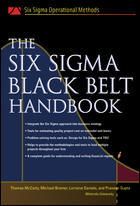Suppose a company wants to expand into a foreign market or combine its product with that of another firm. One of the quickest and most effective ways to accomplish this is through a strategic alliance or joint venture (JV) with another business. An alliance or JV enables a company to expand without developing a new wholly-owned subsidiary, business, or product.
The alliance or JV may be domestic or international. Parties may contribute technical know-how, a brand name (goodwill), or managerial capability. In the international context, a foreign partner may provide production facilities, a marketing network, or inexpensive access to natural resources. These may come in the form of a local subsidy (which could be revoked or repealed) or a local barrier to entry with regard to a regionally-priced basic material.
Any company looking for a partner has to perform due diligence. For example, a Six Sigma company needs Six Sigma vendors to produce a product that meets its quality requirements. A Six Sigma and four sigma partner will clash due to different approaches to business processes and customer service. Company cultures must be compatible. Companies based in Manhattan, Omaha, and Tokyo can be very different.
Parties that decide to enter an alliance or JV should enter a business cooperation agreement to test the feasibility of the working relationship. A strategic alliance does not create a new entity. Usually, it is a contract and may be as simple as a license of technology and patents.
When parties form a JV, they form a new entity (e.g., LLC, corporation). They negotiate their respective ownership, contributions of assets, and the sharing of profits. Before developing a JV, many parties sign a nonbinding letter of intent. While not legally enforceable, the memorandum describes some basic aspects of the relationship that will be incorporated into the JV agreement.
Parties that agree on the basic terms will often negotiate a JV agreement. Among many other things, they should designate a seat of activity and what law will govern. In the international context where one partner is American, it is not uncommon that the JV agreement will be drafted in English and governed by New York or Delaware law.
Parties should agree on their respective asset contributions (e.g., technology, facilities, customer lists, cash) and the apportionment of fundamental responsibilities. They should address significant issues with regard to management and control. Many businesses fail due to disagreements over authority and strategy, as well as personality clashes. The basic issue of authority is not something that can be “worked out later on.” With regard to significant issues that affect a company, after research and internal discussion, someone must be responsible to make a decision or resolve disagreements. Organizations should have a conflict resolution procedure where, if necessary, a mediator can help them constructively resolve conflicts.
International ventures involve sovereign risks. Foreign governments often regulate businesses and can confiscate assets without fair compensation (i.e., nationalization). One should examine a nation’s business and political climate and history. If it has a history of nationalization, there is a substantial risk it will happen again.
International JVs have special operational issues. Many nations impose restrictions on foreign companies operating within their borders. Foreign companies with international operations may have to register and operate from within a “free economic zone.” Foreign companies may be prohibited from participating in certain “critical industries,” such as banking or defense. American law prohibits the export of certain products or technologies used for, or which can be adapted to, military or aerospace use.
Foreign currencies may have convertibility restrictions. Local subsidies and tax breaks come with a cost. Local laws may require JVs to hire a certain number of local employees. Labor and employment laws may encourage frequent labor disruptions that result in delays and costs. JVs may have to invest in a “development parfait.” For example, for many years, the business may have to invest in expensive infrastructure projects and community programs. An American partner must determine the ongoing costs associated with the international JV and its ability to repatriate profits. Executives and entrepreneurs must decide whether the potential benefits of entering an alliance or JV is worth the risk.


